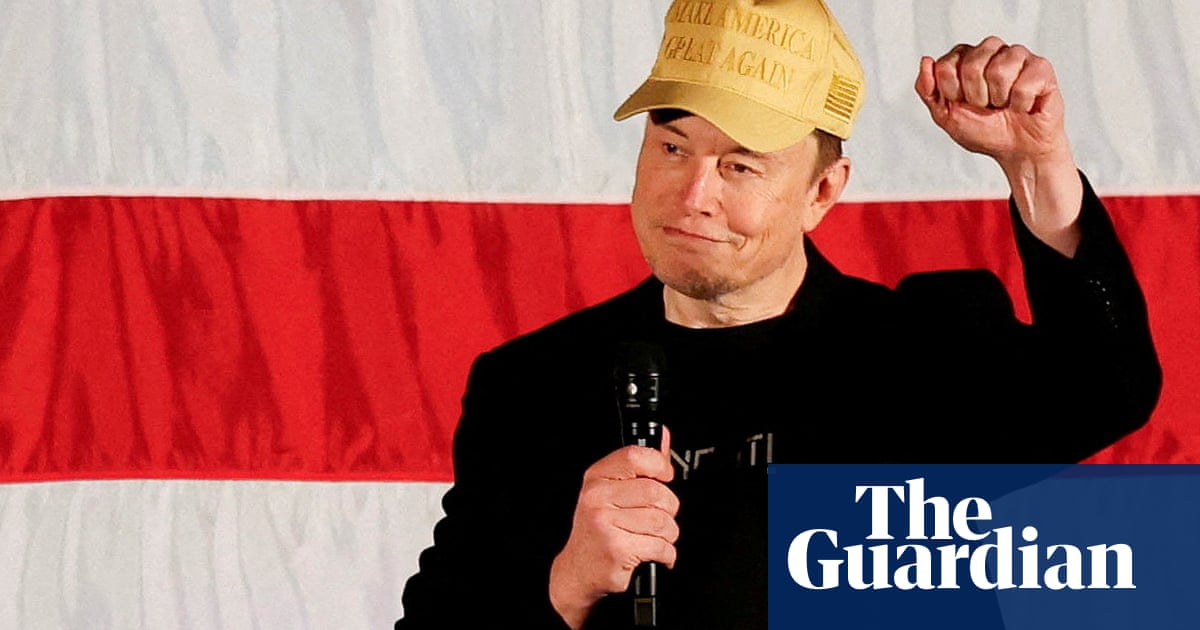Caps on political donations are being considered by ministers as part of sweeping reforms to the UK electoral system.
Labour is examining proposals to limit how much individuals and companies can donate to political parties as part of an effort to tighten the rules around money in UK politics.
In a report to be published in the coming weeks, the Institute for Public Policy Research will recommend that ministers limit individual and corporate donations to political parties to £100,000 a year.
The Guardian understands that officials have sought more detail on those proposals, though the work is still at a very early stage and would come in for the second half of this parliament. It comes amid speculation that Elon Musk, the billionaire owner of the social media platform X, could donate $100m (£79m) to Nigel Farage’s Reform UK party.
In its manifesto, Labour committed to “protect democracy by strengthening the rules around donations to political parties”. At the core of this pledge is an aim to tighten protections around foreign interference in UK democracy.
In opposition, Labour raised concerns about the Conservative government’s decision to abolish the 15-year cut-off at which UK citizens who live abroad were no longer eligible to vote in general elections.
Labour argued that by allowing Britons who have lived abroad for more than 15 years to make political donations and loans, the Tories would give people who are “vulnerable to manipulation by hostile actors” the ability to influence politics.
Donation caps are among a number of measures the government is looking at as part of plans for an election and democracy bill in the next parliamentary session. The bill did not form part of the king’s speech in July and is therefore not expected at the next session in 2026 or later.
A Ministry of Housing, Communities and Local Government spokesperson said: “As set out in the manifesto, we are working to strengthen the rules around donations to political parties to ensure we maintain trust in our electoral system. We will set out more details on this in due course.”
Other reforms being considered are automatic voter registration, which would remove the requirement for people to register to join the electoral roll, and reducing the minimum voting age to 16, which was a Labour manifesto commitment.
Claims that Musk is considering supporting Farage through the UK arm of X will prompt fresh calls to tighten the rules around political donations and impose limits.
Musk, who has been chosen by the US president-elect, Donald Trump, to head up the department of government efficiency, a non-federal presidential advisory body, has been scathing of Starmer’s government since Labour’s landslide victory in July. Last week, he endorsed a post saying Reform would win the next election.
Capping political donations would limit the amount of money flowing into the Labour party’s coffers, however. Labour received more in donations than all other parties combined during the election campaign, collecting more than £9.5m in total. The party’s biggest donor was David Sainsbury, the former chair of the Sainsbury’s supermarket chain, who gave £2.5m.
The Conservatives, meanwhile, have benefited from more than £20m in donations from the businessman Frank Hester since the start of 2023. Hester was at the centre of a political furore in March after the Guardian revealed he had told colleagues at his IT healthcare company in 2019 that looking at Diane Abbott, the UK’s first black female MP, made you “want to hate all black women” and that she “should be shot”.
Analysis by Transparency International over the weekend suggested that loopholes in the existing law were allowing “dark money” to infiltrate British politics, with almost £1 in every £10 donated to parties and politicians coming from unknown or dubious sources.
Cash from companies that have never turned a profit, from unincorporated associations that do not have to declare their funders, and banned donations from overseas donors via intermediaries are all entering the system, according to the research.
In December 2023, Wajid Khan, a Labour frontbencher, told the House of Lords: “We think that opening the electoral register as widely as the government are doing today goes far beyond what our current donation rules were set up to do.
“It will allow those with tenuous links to the UK, who have spent most of their lives in states that may even be openly hostile to our aims, the right to massively influence our system.”

